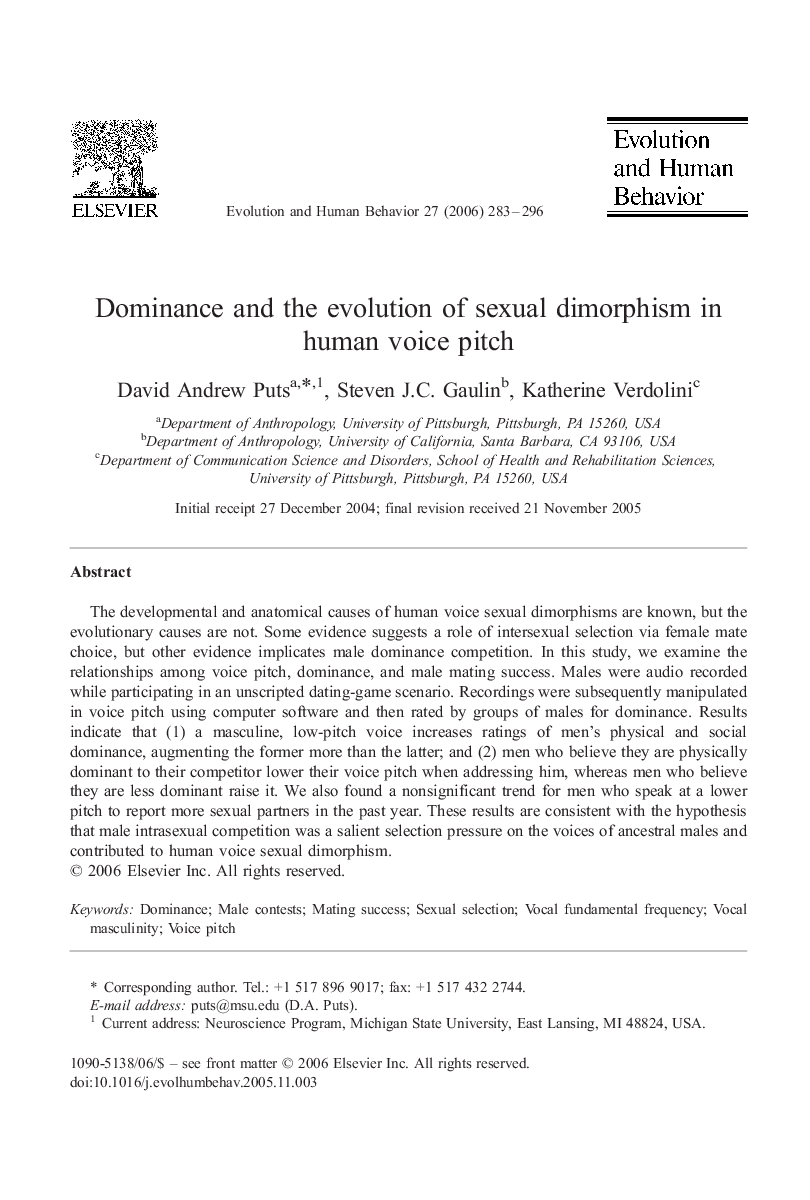| Article ID | Journal | Published Year | Pages | File Type |
|---|---|---|---|---|
| 943520 | Evolution and Human Behavior | 2006 | 14 Pages |
The developmental and anatomical causes of human voice sexual dimorphisms are known, but the evolutionary causes are not. Some evidence suggests a role of intersexual selection via female mate choice, but other evidence implicates male dominance competition. In this study, we examine the relationships among voice pitch, dominance, and male mating success. Males were audio recorded while participating in an unscripted dating-game scenario. Recordings were subsequently manipulated in voice pitch using computer software and then rated by groups of males for dominance. Results indicate that (1) a masculine, low-pitch voice increases ratings of men's physical and social dominance, augmenting the former more than the latter; and (2) men who believe they are physically dominant to their competitor lower their voice pitch when addressing him, whereas men who believe they are less dominant raise it. We also found a nonsignificant trend for men who speak at a lower pitch to report more sexual partners in the past year. These results are consistent with the hypothesis that male intrasexual competition was a salient selection pressure on the voices of ancestral males and contributed to human voice sexual dimorphism.
